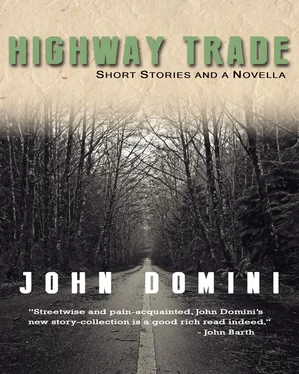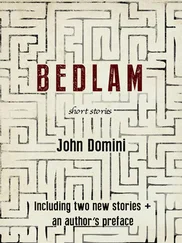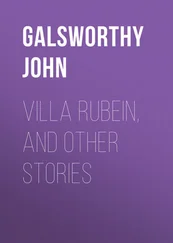John Domini - Highway Trade and Other Stories
Здесь есть возможность читать онлайн «John Domini - Highway Trade and Other Stories» весь текст электронной книги совершенно бесплатно (целиком полную версию без сокращений). В некоторых случаях можно слушать аудио, скачать через торрент в формате fb2 и присутствует краткое содержание. Год выпуска: 2013, Издательство: Dzanc Books, Жанр: Современная проза, на английском языке. Описание произведения, (предисловие) а так же отзывы посетителей доступны на портале библиотеки ЛибКат.
- Название:Highway Trade and Other Stories
- Автор:
- Издательство:Dzanc Books
- Жанр:
- Год:2013
- ISBN:нет данных
- Рейтинг книги:4 / 5. Голосов: 1
-
Избранное:Добавить в избранное
- Отзывы:
-
Ваша оценка:
- 80
- 1
- 2
- 3
- 4
- 5
Highway Trade and Other Stories: краткое содержание, описание и аннотация
Предлагаем к чтению аннотацию, описание, краткое содержание или предисловие (зависит от того, что написал сам автор книги «Highway Trade and Other Stories»). Если вы не нашли необходимую информацию о книге — напишите в комментариях, мы постараемся отыскать её.
Highway Trade and Other Stories — читать онлайн бесплатно полную книгу (весь текст) целиком
Ниже представлен текст книги, разбитый по страницам. Система сохранения места последней прочитанной страницы, позволяет с удобством читать онлайн бесплатно книгу «Highway Trade and Other Stories», без необходимости каждый раз заново искать на чём Вы остановились. Поставьте закладку, и сможете в любой момент перейти на страницу, на которой закончили чтение.
Интервал:
Закладка:
As soon as Sitnell came out, Kroh had his elbow.
“Look man.” Kroh was right in his face, too close for Sitnell’s height to matter. “Perfect concerned family man, everything’s so set and clear for you. Shit. Did I ask you to judge me? Did I ask for any of this?”
He waved his free hand at the rest of the lounge. Sitnell didn’t even want to look.
“Did I ask to come out West and have, have all you assholes out here hang my guts on a line? Did I? None of you know what it was like. Not when I was really up against it, none of you assholes know! You don’t know the loneliness.”
Sitnell didn’t know whether he’d pulled his arm free himself or Kroh had let go of it. In any case now the publicist stood waving both hands as if the air itself in here had to be clawed out of the way. And was he about to start crying? Somebody else might have said something but the words didn’t register, it was all Sitnell could do just to keep up with this man in front of him. Kroh had moved on to some story about trying to get his baby to sleep. “I just couldn’t get it to close its eyes. And then I’d think of Eunice, when I kissed Eunice these days — I couldn’t get her to close her eyes either!” Which one was Eunice? Pointless gossip. Yet even as Sitnell realized that much — how pointless talking was, compared to this man’s pain — he suffered crazier thoughts. A tune came to mind: Gotta sing. Gotta dance . Wicked gin flashes. What was Sitnell turning into, here? It was that Motown jacket, and the way the fat little man had started to stamp his feet, paw his eyes.
Sitnell tried to clear his head. He spread his hands to get a better sense of how much room the two of them had. Close enough so his bifocals didn’t matter, he tried to keep track of the whole man for the first time tonight.
“I know what loneliness is,” he said. “Listen Jimmy, please. My wife and I were separated for two years during the war.”
“Do you two mind?” This time he couldn’t ignore the other voice; Sitnell himself had been speaking so much more gently. “The lady and I would like a little quiet.”
The businessman. And somehow it stung Sitnell worse to see the girl, her neck bent and her face out of sight behind one hand.
“I’m so sorry.” The words were a reflex. “Honestly sir, I apologize.” Blind reflex, and Sitnell was practically standing at attention. “I don’t know how we’ve—“
“Oh, hey. Are we disturbing you? Are we really disturbing you?” Kroh had already spread his hands on the couple’s table. “Do you find us two rather disagreeable types?”
That fast, Kroh and this other guy were on their way. Sitnell hadn’t seen two men so determined to start a fight in years. And he didn’t want to look anywhere else either, he knew everyone in the place was lined up against him by now. Sitnell shuffled a step closer. Already the businessman seemed nothing but knuckles and an upthrust chin. Kroh’s muscling in had knocked the girl’s gift out where it could be seen, it was some art book with a fleshy triangular design on the cover. But Sitnell looked past it and tried to catch the younger man’s eye.
His smile felt awful, the limpest kind of fake. The shouting didn’t seem to leave room for him.
“What’s your problem?” the businessman was saying. “Are you two from New York?”
“Do you have a job for me, sir? Do you have some money for me, sir? Because if none of you laid-back West Coast pricks has any way I can get some money right now , you can just get out of my life!”
Almost crying again. Though nobody else noticed that of course, in fact Kroh’s belligerence kept jacking up so fast that Sitnell himself was frozen a step or two away, his hands folding towards his jacket.
“Because one thing you should all know, I’m no goddamn publicist!” Kroh’s gestures had gone cockeyed. Sitnell had the thought that he needed his portfolio for balance. “You should all know. I came here bareass! Here, you think I’m lying all the time, take a look at—“
Kroh had just about got the wallet out of his jacket’s inside pocket when the businessman jumped him. No doubt everyone had expected a gun. As it was, Kroh could only flip the empty billfold away short-armed; the first of the mill workers in knocked Sitnell sideways, and so he could see it flop open and fall among the well drinks. He hadn’t needed to see it was empty. Sitnell already felt so sorry for Jimmy Kroh that what he wanted most just now was somehow to get the man out of there and maybe share some coffee in a quiet place. But the rest of the crowd were in too fast. One guy actually stiff-armed Sitnell. The shot to the chest made him aware of his age, all loose skin and fragile bones, and he couldn’t catch his breath as he stumbled back. Though he knew they wouldn’t chase an old man, he couldn’t run. He could only keep staring. The businessman’s girl had disappeared. Kroh was throwing elbows and hopeless jabs, screaming—“You think I’m lying? You think Ymkidding?” —as he circled from man to man. Or rather, as he and one other man circled each other. Not the businessman; he’d backed off almost as far as Sitnell. But though everyone there had gotten a piece of Kroh in the first moment or two, so that one leather sleeve was coming off at the armpit and his lapel hung torn, now the artist appeared to have squared off inside a loud and obscene ring of the others with the biggest cowboy in the place. Red-cap type. Extra studs on his belt, real liquor in his look.
Sitnell couldn’t say where he sat. He found he’d started shivering, but he couldn’t do a thing with his reversible. The zipper itself seemed like too much for him, a black V of teeth made into a triangle by his own aching head. When the first punch landed, he swore he could hear a bone crack.
Could this have been what he’d wanted, coming here? Maybe it was like his wife had said when, two months shy of forty, she’d told him she was pregnant again. She’d said then that Sitnell just didn’t believe in things till they hurt him. Sitnell just kept moving on—“like a goddamn pioneer,’” she’d said — till something hurt him. Of course he’d played it cool, he’d pointed out what a comfortable life they had. But he’d gone on wondering. And no question, this book had shaken him worst. He’d started out wanting simply to cheer on the brave men he’d fought with, to celebrate their time together, the way he’d sat here and cheered the night the bartenders had nailed Maurice Lucas’s sneakers to the wall. But in order to write he’d put himself through it all again, even that sham picture of his wife he’d used to get himself running towards the enemy line. So in the end it seemed he’d done the opposite of what he’d wanted to. It seemed he’d proven that he and his company had been miserable. They’d rushed to their death out of a blind crush of silly notions and baby-talk, seeking elbow room, seeking a minute or two more of comfort and a good cigarette, and instead they’d come up hard against the nightmare.
He was finding it easier to think, there wasn’t so much noise. Had the fight ended already? A man was crying, anyway.
“Hey you!” the barmaid shouted. “You!”
He turned to the window, needing a minute. But Mt. Hood was gone, and under the rain the neighborhood had turned black and white.
Minimum Bid
BY THE NIGHT of the art auction Kath had achieved the look she wanted, the wallop of a freethinking woman in her fifties. Endless sessions at the Fitness Center had honed her for the role (that, plus the calcium pills), a New Year’s resolution made a fact by mid-autumn. For the auction she chose a black pantaloon one-piece, a romper with a tank top, showing off flat and burnished pectorals. Round her waist she knotted a thong strung with native medallions, gargoyle faces, and she pegged on witty earrings. She was Katherine Wick, divorced and remade. If people wanted to talk about her, if they wanted to whisper and glance sidelong — then she might as well be the talk of the night.
Читать дальшеИнтервал:
Закладка:
Похожие книги на «Highway Trade and Other Stories»
Представляем Вашему вниманию похожие книги на «Highway Trade and Other Stories» списком для выбора. Мы отобрали схожую по названию и смыслу литературу в надежде предоставить читателям больше вариантов отыскать новые, интересные, ещё непрочитанные произведения.
Обсуждение, отзывы о книге «Highway Trade and Other Stories» и просто собственные мнения читателей. Оставьте ваши комментарии, напишите, что Вы думаете о произведении, его смысле или главных героях. Укажите что конкретно понравилось, а что нет, и почему Вы так считаете.











